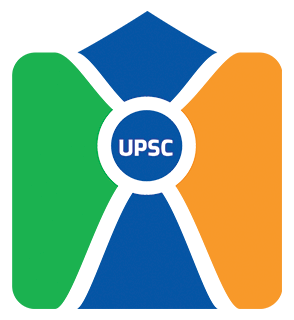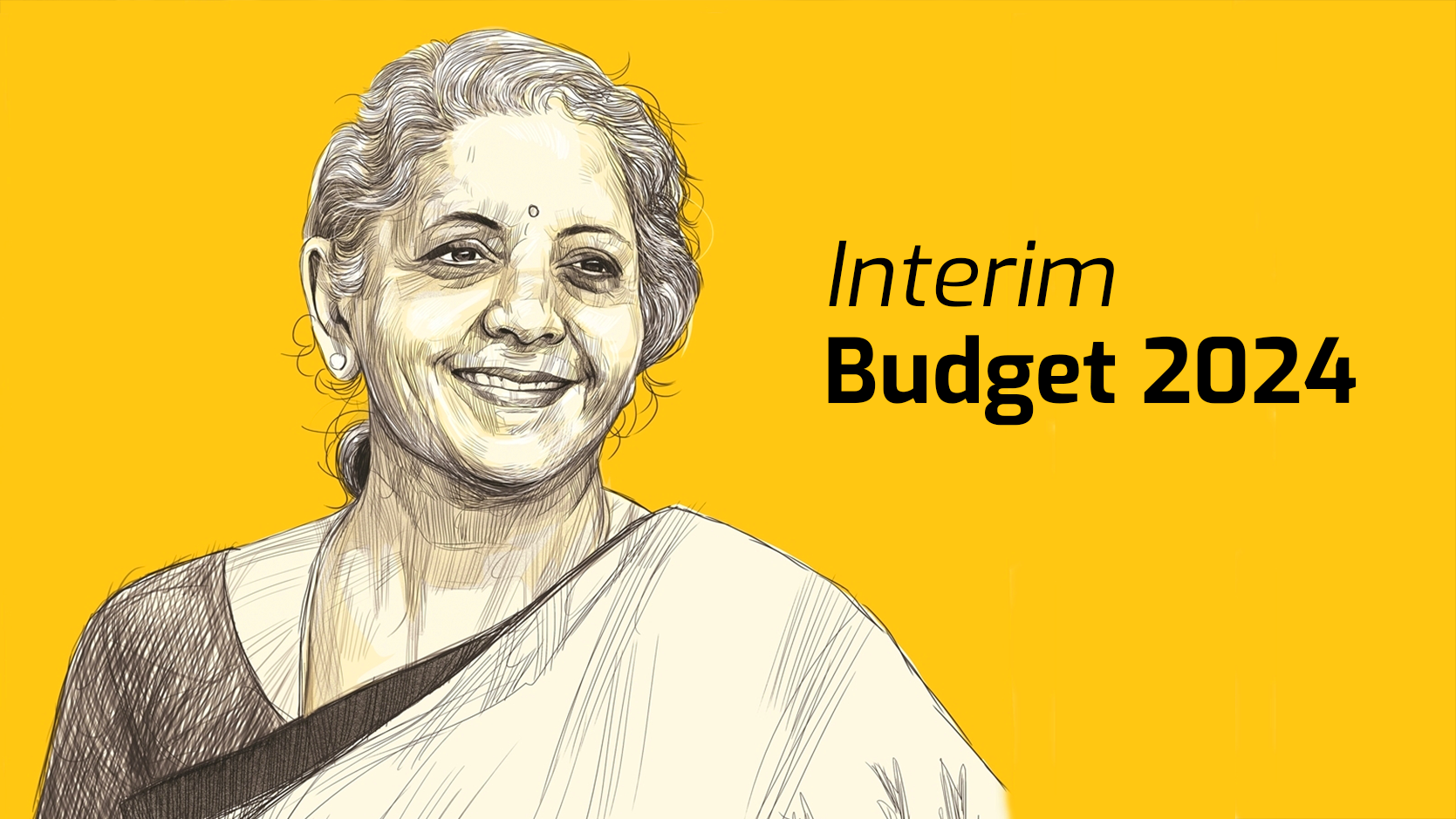UPSC Economics Syllabus: The UPSC Economics Syllabus covers various topics for Prelims, Mains, and optional subjects. In the prelims, it include understanding social development and the Indian economy. The main syllabus goes deeper into areas like government budgeting, infrastructure, and security challenges. For those choosing Economics as an optional subject, microeconomics and macroeconomics are essential. Microeconomics involves topics like demand and supply, while macroeconomics includes national income and monetary policies.
Overall, the syllabus aims to test candidates’ understanding of economic principles and their ability to apply them practically. It emphasizes critical thinking and analytical skills for tackling economic questions effectively in the UPSC Civil Services exam.
In this article, we will discuss the detailed syllabus of UPSC Economics, covering topics for Prelims, Mains, and optional subjects.
UPSC Economics Syllabus For Prelims
The Economics syllabus for UPSC Prelims is comprehensive, covering a wide range of topics that are crucial for understanding economic and social development, both in India and world. Let’s look into each aspect in detail:
Economic and Social Development: This section covers various dimensions of development, including sustainable development, poverty alleviation, social inclusion, demographic trends, and initiatives aimed at enhancing the social sector. Candidates are expected to have a clear understanding of the concepts and policies related to these areas.
Economic Growth and Development: Understanding the fundamental concepts of economic growth and development is essential. This includes grasping the difference between growth and development, exploring the determinants of growth, and analyzing various indices used to measure development, such as the Human Development Index (HDI), Multidimensional Poverty Index (MPI), and others.
Poverty: Poverty is a significant concern in India, and candidates need to comprehend its various dimensions. This involves understanding the causes and consequences of poverty, methods of measuring poverty, government initiatives for poverty alleviation, and issues related to tribal rights and livelihoods.
Inclusion: Inclusion refers to ensuring that all sections of society have access to resources and opportunities. Candidates should understand the concept of inclusion, its relevance in policy formulation, different types of inclusion (such as financial inclusion), and recent initiatives taken by the government to promote inclusive growth.
Demographics: Demographic trends play a crucial role in shaping economic and social policies. Candidates are expected to analyze census data, population trends based on factors like gender, age, socio-economic status, caste, religion, and literacy levels. Understanding demographic changes and their implications is essential for policy formulation.
Fiscal Policy: Fiscal policy involves the government’s revenue and expenditure decisions to achieve economic objectives. Candidates should have a clear understanding of fiscal policy components, such as tax revenue, government expenditures, and budgetary allocations. They should also be familiar with the budgetary process and its significance in economic management.
Social Issues: Social issues like healthcare, education, sanitation, and social security have a significant impact on economic development. Candidates need to understand the financing of social sector policies, challenges in infrastructure development, and issues related to international trade and regional cooperation.
Current Affairs: Staying updated on current economic affairs is crucial for the UPSC Prelims examination. Candidates should be aware of recent government initiatives, economic policies, international agreements, and India’s relations with neighboring countries. This requires regular reading of newspapers, journals, and other relevant sources.
A thorough understanding of the Economics syllabus for UPSC Prelims requires candidates to grasp both theoretical concepts and their practical implications for economic and social development. By covering these topics comprehensively and staying updated on current affairs, candidates can effectively prepare for the Prelims examination.
UPSC Economics Syllabus For Mains
The Economics syllabus for UPSC Mains, specifically covered under General Studies Paper III, holds paramount importance for aspirants aiming for the coveted civil services. Here’s a detailed breakdown of the important topics covered in the syllabus:
Indian Economy: This includes a broad spectrum of topics ranging from planning, resource mobilization, development strategies, growth trajectories, to employment dynamics. Understanding the nuances of India’s economic structure, policy frameworks, and growth challenges is crucial for aspirants.
Inclusive Growth: The syllabus emphasizes the need for economic development to be inclusive, ensuring equitable distribution of benefits across various segments of society. Aspirants delve into policies and programs aimed at addressing disparities and promoting social justice within the economic realm.
Budgeting: An intricate understanding of budgetary processes, fiscal policies, revenue mobilization, and expenditure allocation forms a crucial part of the syllabus. Aspirants analyze budget documents, assess fiscal deficits, and evaluate the impact of budgetary decisions on economic development.
Agriculture: Given the significance of agriculture in India’s economy, aspirants explore various facets such as cropping patterns, irrigation techniques, agricultural marketing, subsidies, minimum support prices, and food security measures. Understanding agricultural economics is vital for comprehending rural development dynamics.
Food Processing and Related Industries: The syllabus extends to the role of food processing industries in value addition, employment generation, and overall economic growth. Aspirants analyze the potential of this sector in augmenting agricultural productivity and diversifying rural economies.
Land Reforms: Land tenure systems, redistribution policies, land-use patterns, and their implications for agricultural productivity and rural development are integral components of the syllabus. Aspirants critically evaluate past and present land reform initiatives and their socio-economic impact.
Liberalization Effects: Post-1991 economic reforms and their ramifications on various sectors such as agriculture, industry, and services are scrutinized.
Infrastructure: Infrastructure development, including energy, transportation, and telecommunications, is analyzed for its catalytic role in economic growth and regional development. Aspirants delve into policy frameworks, investment models, and challenges hindering infrastructure augmentation.
Investment Models: Public-Private Partnerships (PPPs), Foreign Direct Investment (FDI), and other investment models are studied for their contribution to infrastructure development, industrial growth, and economic expansion. Aspirants evaluate the efficacy of different investment frameworks in fostering sustainable development.
UPSC Economics Syllabus For Optional
The UPSC Economics syllabus for the optional subject is detailed and covers various aspects of economic theory, policy, and application. Here’s an overview of the topics covered:
UPSC Economics Syllabus Paper 1
The UPSC Economics optional syllabus for Paper 1 covers a wide range of topics, both macro and microeconomic in nature. Here’s a detailed overview of the syllabus:
Advanced Micro Economics:
- Approaches to Price Determination: Marshallian and Varrasiam.
- Alternative Distribution Theories: Ricardo, Kaldor, Kaleeki.
- Market Structure: Monopolistic Competition, Duopoly, Oligopoly.
- Modern Welfare Criteria: Pareto Hicks and Scitovsky, Arrow’s Impossibility Theorem, A. K. Sen’s Social Welfare Function.
Advance Macro Economics:
- Approaches to Employment Income and Interest Rate determination: Classical, Keynes (IS-LM) curve, Neo-classical synthesis and New classical, Theories of Interest Rate determination and Interest Rate Structure.
- Demand for and Supply of Money: Money Multiplier Quantity Theory of Money (Fisher, Pique and Friedman) and Keynes Theory on Demand for Money, Goals and Instruments of Monetary Management in Closed and Open Economies.
Money-Banking and Finance:
- Public Finance and its Role in Market Economy: Stabilization of supply, allocation of resources, distribution, and development.
- International Economics: Old and New Theories of International Trade, Forms of Protection, Balance of Payments Adjustment, Trade Policy and Developing Countries, WTO, Growth and Development, Theories of growth, Process of Economic Development of less developed countries.
This syllabus emphasizes a comprehensive understanding of economic theories, principles, and their practical applications in various economic phenomena. Mastering these concepts, theories, and analytical tools will be crucial for excelling in the UPSC Economics Paper 1.
UPSC Economics Syllabus Paper 2
The UPSC Economics Paper 2 covers the Indian economy, focusing on both the pre and post-independence eras. Here’s a detailed breakdown of the syllabus:
Indian Economics in Post-Independence Era:
- Land System and its changes, Commercialization of agriculture Drain theory, Laissez-faire theory and critique.
- Manufacture and Transport: Jute, Cotton, Railways, Money, and Credit.
Indian Economy after Independence:
The Pre-Liberalization Era:
- Contribution of Vakil, Gadgil, and V.K.R.V. Rao.
- Agriculture: Land Reforms and land tenure system, Green Revolution, and capital formation in agriculture.
- Industry Trends in composition and growth, Role of the Public and private sector, small scale and Cottage Industries.
- National and Per capita income: Patterns, trends, aggregate and sectoral composition and changes therein.
- Broad factors determining National Income and distribution, Measures of poverty, Trends in poverty and inequality.
The Post-Liberalization Era:
- New Economic Reform and Agriculture: Agriculture and WTO, Food processing, Subsidies, Agricultural prices, and public distribution system, Impact of public expenditure on agricultural growth.
- New Economic Policy and Industry: Strategy of industrialization, Privatization, Disinvestments, Role of foreign direct investment and multinationals.
- New Economic Policy and Trade: Intellectual property rights: Implications of TRIPS, TRIMS, GATS, and new EXIM policy.
- New Exchange Rate Regime: Partial and full convertibility, Capital account convertibility.
- New Economic Policy and Public Finance: Fiscal Responsibility Act, Twelfth Finance Commission and Fiscal Federalism and Fiscal Consolidation.
- New Economic Policy and Monetary System. Role of RBI under the new regime.
- Planning: From central Planning to indicative planning, Relation between planning and markets for growth and decentralized planning: 73rd and 74th Constitutional amendments.
- New Economic Policy and Employment: Employment and poverty, Rural wages, Employment Generation, Poverty alleviation schemes, New Rural, Employment Guarantee Scheme.
This syllabus covers a wide range of topics related to the Indian economy, including its historical development, policy reforms, and contemporary issues. Understanding these concepts and their implications is essential for scoring well in the UPSC Economics Paper 2.
Topic-wise distribution of questions in the economics optional in UPSC mains
Based on the expected marks distribution for the UPSC Economics optional exam, aspirants should prioritize their preparation accordingly. Here’s a breakdown of the probable number of questions for each topic:
| Topics | Probable Number of Questions |
| Indian Economy | 40 to 45 questions |
| Micro and Macro Economics | 35 to 40 questions |
| International Economics | 15 to 20 questions |
| Money, Banking & Public Finance | 10 to 15 questions |
| Growth and Development | 9 to 10 questions |
| Statistics | 7 to 10 questions |
Important Topics in UPSC Economics Optional Syllabus
Here are some important topics in the UPSC Economics Optional syllabus:
Paper 1: Economic Theories
- Microeconomics:
- Theories of consumers’ and producers’ behavior
- Analysis of main types of market structures: perfect competition, monopoly, oligopoly
- General Equilibrium and Welfare Economics
- Macroeconomics:
- Study of economic aggregates: output level, general price level, interest rates, unemployment, wages, etc.
- Various schools of Macroeconomics: Classical, Keynesian, Neo-Keynesian, Monetarist, New Classical, New Keynesian
- Theories on the behavior of Macroeconomic variables
- International Economics:
- Microeconomic theories of international trade, trade barriers, trade blocks
- Macroeconomic theories of the open economy: balance of payments, exchange rates
- Growth and Development:
- Theories of economic growth: Harrod, Domar, Solow, Lewis, Romer
- Inter-relationships between economic development and agriculture, population, human capital, environment, trade
Paper 2: Indian Economy
- Pre-Independence Indian Economy:
- Features of the Indian economy during British Rule: agriculture, industries, railways, etc.
- Post-Independence Indian Economy (1947-1991):
- Various sectors: agriculture, industries
- Economic problems: inequality, poverty, unemployment
- Policies: planning, Five-Year Plans
- Post-1991 Indian Economy:
- Economic features and policies introduced after liberalization
- Reforms in sectors like agriculture, industries
- Booklist for UPSC Economics Syllabus
- Addressing new economic challenges and opportunities
Booklist for UPSC Economics Syllabus
Here’s a booklist recommended for preparing for the UPSC Economics optional syllabus for both Paper I and Paper II:
Paper I:
- “Dictionary of Economics” by Graham Bannock, T.E. Baxter, Ray Rees
- “Economic Growth and Development” by Mayer and Baldwin
- “Economics” by Paul A. Samuelson
- “Economics Choice” by Koutsweanik
- “Growth and Development” by M L Jhingan
- “International Economics” by Bo Soderston
- “International Economics” by H.G. Mannur or Salvatore
- “International Trade” by Bo Soderston
- “Macroeconomic Analysis” by Edward Shapiro
- “Modern Banking” by R.S. Sayers
- “Monetary Theory and Public Policy” by Kenneth Kurihara
- “Money Supply in India: Concepts, Compilation and Analysis: Functions and Working” by Reserve Bank of India
- “National Income Accounting” by Neethu
- “Outline of Monetary Economics” by A.C.I. Day
- “Public Finance” by H.L. Bhatia
- “Public Finance” by K.K. Andley and Sundharam
Paper II:
- “Indian Economy” by Ramesh Singh
- “The Indian Economy” by Sanjiv Verma
- “Indian Economy” by Mishra and Puri
- “Indian Economy” by R. Dutt and KPM Sundaram
- “Banking” by S.B. Gupta
- “Economic Survey: Twelve Five Year Plan: New Industrial Policy” by Government of India
- “The Economic Times”
- “Economical and Political Weekly”
These books cover various aspects of economics, including microeconomics, macroeconomics, international economics, public finance, and the Indian economy, providing a comprehensive understanding of the subject for UPSC preparation.


 UPSC Sociology Syllabus
UPSC Sociology Syllabus  UPSC Bodo Literature Optional Syllabus
UPSC Bodo Literature Optional Syllabus 


